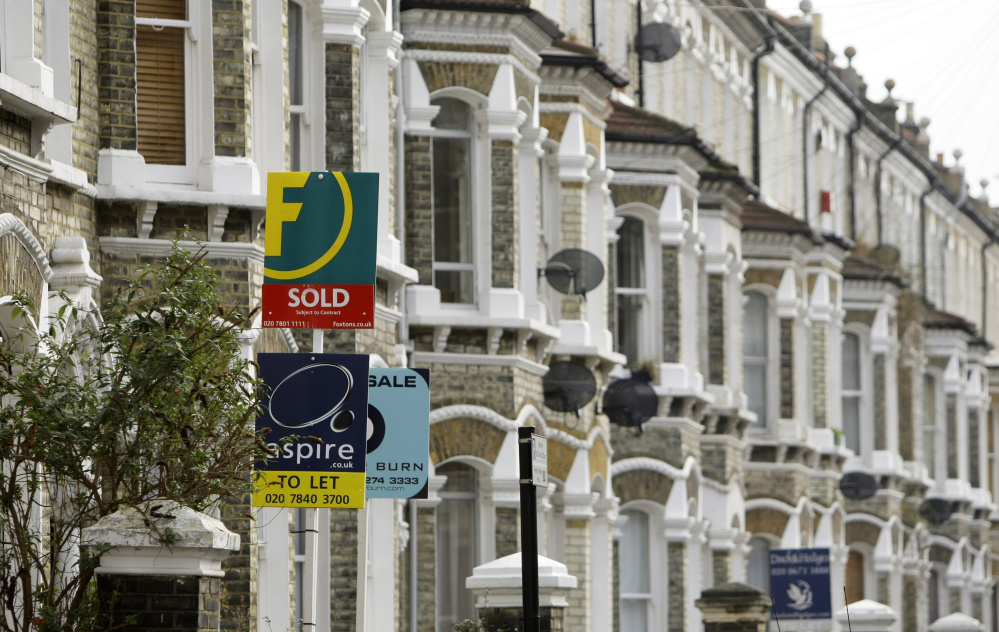LONDON — London’s property crisis is best seen at night, when entire streets in Central London are in the dark. Welcome to one of the world’s most expensive places.
Except that hardly anyone will be there to welcome you.
Nearly half of all properties in Central London are owned by foreigners. Most of the owners do not live in their properties but rather use them as second homes or investment properties. Foreign ownership has driven up property prices immensely, and has made life in central districts almost impossible for many poorer Londoners who feel the fallout most severely.
Fixing the city’s housing crisis was one of London Mayor Sadiq Khan’s election promises during his campaign this summer. Now, in an interview with the Guardian, he has announced the launch of an unprecedented inquiry into foreign home ownership and “dirty money” that is allegedly being used to buy property in the British capital. The project will be watched closely in other world capitals facing similar issues, and has the potential to become a model for how to address the issue.
“It’s clear we need to better understand the different roles that overseas money plays in London’s housing market, the scale of what’s going on and what action we can take to support development and help Londoners find a home,” Khan said.
More so than in other countries, the capital city is of particular importance to many Brits. The best jobs are here and the accumulation of world-class universities is stunning.
But younger professionals and university graduates see themselves increasingly faced with uncomfortable choices: either move away to a smaller city with fewer opportunities or launch a career in London with the financial support of parents.
For children with lower-income parents, there is often only one choice.
Social mobility NGO Sutton Trust recently concluded that the capital’s housing crisis was causing widening rifts within British society.
In a report, it described how “bright, young people – especially those from disadvantaged backgrounds – are being priced out of the city’s housing market, despite London being the top place in the country for law, medicine, media, and finance jobs.”
Some think that Khan’s inquiry into foreign home ownership is a farce, though. “He is covering up the failures of the authorities by blaming the impact on foreign homeowners,” said Naomi Heaton, chief executive of real estate advising company London Central Portfolio.
From 2001 to 2015, London’s population increased by 12 percent, but the number of homes built has lagged behind. Many of London’s 8 million inhabitants have even had difficulty finding property far away from the city center, where foreign owners have bought up much of the available properties.
“British buyers and international customers are interested in totally different types of properties,” Heaton said. “It is not the interest among overseas buyers in acquiring some of the most expensive homes in London that is at the core of the problem, but rather the government’s failure to build affordable homes.”
Heaton criticized the fact that local authorities had granted permission to real estate owners to build luxury homes in cheaper suburbs instead of favoring construction of large-scale affordable housing projects there. She believes that Khan’s inquiry will find that foreign home ownership has in fact benefited London.
Unsurprisingly, Sadiq Khan’s determination to tackle rising housing prices has been applauded in most of London.
Send questions/comments to the editors.



Success. Please wait for the page to reload. If the page does not reload within 5 seconds, please refresh the page.
Enter your email and password to access comments.
Hi, to comment on stories you must . This profile is in addition to your subscription and website login.
Already have a commenting profile? .
Invalid username/password.
Please check your email to confirm and complete your registration.
Only subscribers are eligible to post comments. Please subscribe or login first for digital access. Here’s why.
Use the form below to reset your password. When you've submitted your account email, we will send an email with a reset code.